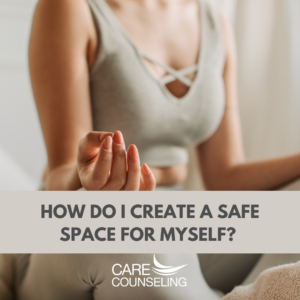How to Build a Safe Space for Yourself
 In a world filled with constant stressors and demands, having a safe space where you can find solace, recharge, and reconnect with yourself is essential for your mental and emotional well-being. Whether it’s a physical location or a mental refuge, creating a safe space can help you manage stress, promote self-care, and foster personal growth.
In a world filled with constant stressors and demands, having a safe space where you can find solace, recharge, and reconnect with yourself is essential for your mental and emotional well-being. Whether it’s a physical location or a mental refuge, creating a safe space can help you manage stress, promote self-care, and foster personal growth.
Understanding the Concept of a Safe Space
A safe space is a physical or mental environment where you feel comfortable, secure, and free from judgment or external pressures. It’s a sanctuary where you can be yourself, express your thoughts and emotions, and engage in self-care activities without fear or distraction. Here’s how you can start building your safe haven:
- Choose Your Physical Space
Creating a physical safe space is often the first step. It can be a specific room, corner, or even a favorite chair. Consider the following when selecting your physical safe space:
– Privacy: Ensure your space offers privacy and minimizes interruptions.
– Comfort: Make it comfortable with cozy furniture, cushions, or blankets.
– Personalization: Decorate it with items that resonate with you, such as photos, artwork, or objects of significance.
– Tranquility: Create a peaceful atmosphere through lighting, soothing colors, and calming scents like lavender or eucalyptus.
– Accessibility: Ensure it’s easily accessible when you need it.
- Set Boundaries
Clearly define the boundaries of your safe space, both physically and mentally. Communicate to others when you need time in your safe space and ask for their understanding and respect. This helps establish the space as a sanctuary dedicated to your well-being.
- Disconnect from Technology
Consider making your safe space a tech-free zone, at least during your relaxation time. Disconnecting from screens and notifications allows you to fully immerse yourself in the present moment and reduce digital distractions.
- Develop a Ritual
Create a ritual or routine that signifies the start and end of your safe space time. It can be as simple as lighting a candle, practicing deep breathing, or journaling. These rituals signal to your mind that it’s time to transition into a safe and calming environment.
- Engage in Mindfulness Practices
Mindfulness meditation, deep breathing exercises, or progressive muscle relaxation can help you center yourself and reduce stress within your safe space. These practices allow you to stay present and release tension.
Creating a Mental Safe Space
Beyond the physical environment, you can create a mental safe space within your mind, providing comfort and resilience in challenging situations:
- Visualization
Imagine a serene and calming place within your mind. It could be a beach, a forest, or a cozy cabin. Whenever you feel overwhelmed, close your eyes and visualize yourself in this safe mental space, allowing you to escape temporarily from stressors.
- Positive Self-Talk
Develop a set of positive affirmations and empowering self-talk that you can use when negative thoughts or self-doubt arise. These affirmations remind you of your worth and resilience.
- Journaling
Maintain a journal where you can freely express your thoughts, feelings, and experiences without judgment. Journaling can help you process emotions and gain clarity about your challenges.
- Self-Compassion
Practice self-compassion by treating yourself with the same kindness and understanding that you would offer a close friend. Recognize that it’s okay to have imperfections and make mistakes.
- Emotional Regulation
Learn to regulate your emotions by identifying triggers and practicing emotional intelligence. This enables you to respond to challenging situations more effectively.
Creating a safe space for yourself, whether physical or mental, is a powerful act of self-care. It allows you to recharge, find solace, and foster personal growth in a world that can sometimes be overwhelming. By carefully choosing your physical space, setting boundaries, disconnecting from technology, and engaging in mindfulness practices, you can create a physical safe space that supports your well-being.



























